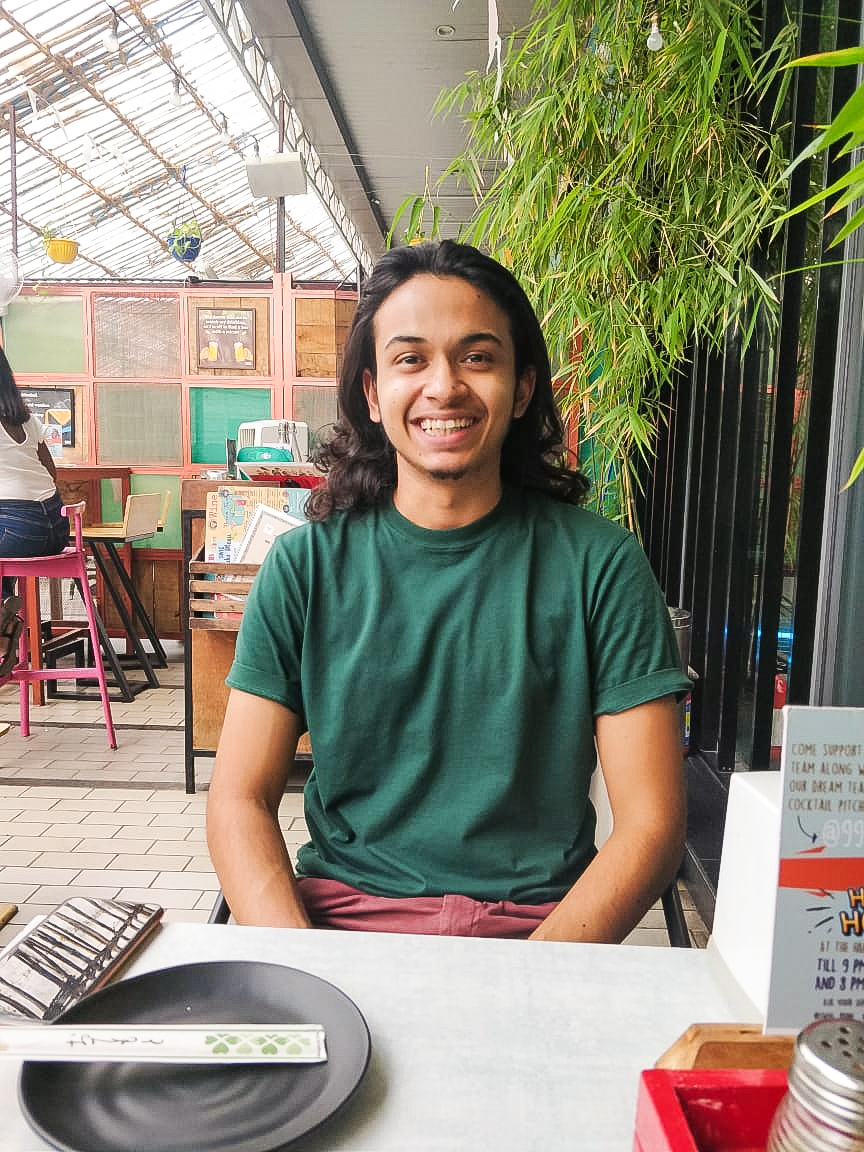
Courtesy of Siddharth Chatterjee
My conversation with Siddharth Chatterjee, Yale NUS ’21, was the kind you hope to have at 10:00 p.m. on a Tuesday night but cannot always find.
We spoke about everything. Home, utility, American humor, consumerism, language, ego. As a semester exchange student, Siddharth is already halfway through his Yale career and knows it. “If I could attend a different college every year, I would.” Siddharth recognizes the way he is endowed with the miraculous experience of novelty and maturity. New Haven is new but being a college student isn’t. For much of our conversation, I listened in awe, noting the way he moves with the kind of ease I imagine his namesake to have practiced. Siddharth is quick to laugh and slow to answer, taking time to contemplate his response to my questions.
We talk about performance. Siddharth is a member of the Fifth Humor comedy sketch group, spending his evenings practicing ways to make people laugh. While educated in English at a boarding school in rural India, sans technology, Siddharth is still tasked with understanding the “cultural context” of American humor. But perhaps Siddharth’s humor transcends culture. He is, after all, a self-identified storyteller, taking classes in politics, ethics, screenwriting and philosophy so as to one day tell a story that might just make sense of it all. His intellectual virtuosity is unsurprising, considering that Siddharth comes from a family of academics. His father is a professor of organization behavior, and his sister is a graphic artist and climate change activist. And yet Siddharth wisely grapples with the object of “performance.” He is not quite comfortable with how comedy, the experience of introducing yourself to a new community and perhaps human life at-large require constant performance. Maybe the source of this discomfort, he postulates, is the way the performative self becomes one with the authentic. “The Greek word for identity means continued being. What you do every day is what you become, so I’m not sure what I would be if not for my performed self.”
For all the ways Siddharth scrutinizes his performative self, inhibitions and ego, he also believes one can best achieve utility by tending to other people’s happiness and the moment itself. He is a student of Gandhi, a thinker he encounters for a third time in his “Moral Choices in Politics” class. Siddharth advocates for weighing how one pursues an objective and the objective itself equally. And perhaps this is where I stand in greatest admiration of the person I have only just met: Siddharth seems to contemplate practice at every turn.
Early in our conversation, he mentions how difficult it is to be present at Yale given the robust opportunity and stimulation. Thus, when faced with a rainy walk on the way to the interview, Siddharth chooses to walk slowly, without earbuds, letting the cool drops of water wake and ground him in the moment. It is these kinds of decisions that illustrate Siddharth’s sustained consciousness; I left the interview feeling that few of us exist in the waking life as continually as my new friend. We can, however, hope his notions are distilled to the masses. One day, Siddharth wants to teach. He is fascinated with the mundane stuff, “everyday life,” as he calls it. He frames his interest as how one’s vision of the self dictates identity and who we become, a concept nearly Aristotelian in its emphasis on training the self. But Siddharth presents his notions with ease and humility instead of ceaseless striving. He is quick to admit what he doesn’t do (practice vegetarianism) and how he wants to be more conscious (seeing an animal in pain instead of a piece of a cooked chicken).
Despite his impressive contemplation, Siddharth isn’t esoteric or pretentious; he’s real and kind. He recounts a conversation with a friend about intentionality and productivity, the same one we’ve all had about how little we’ve accomplished in the day, choosing distractions instead. Yet Siddharth and his friend offer a profound take on this dilemma: “If we watched a movie together at the end of the day, we would be happy about that, but the same action at a different time makes all the difference.” They conclude with the solution of intention. “If you do anything with intention, everything there is to know in the world seems to be present in that moment. Washing a dish shows you the circularity of life. Everything you are looking for is already present in the moment.”
It is with this intention that Siddharth seems to approach everything from Punjabi rap, his current musical obsession, to 1:00 AM trips to GHeav with the friends he has made and must leave at the end of the semester. I could never do Siddharth justice — there is too much color and light for something as static as a profile. But if there is one thing I know for certain, it’s this: I wish Yale had more time with Siddharth, more time for him to make us laugh and to make us think. But I think that Siddharth is the kind of person you can encounter once and never forget.







